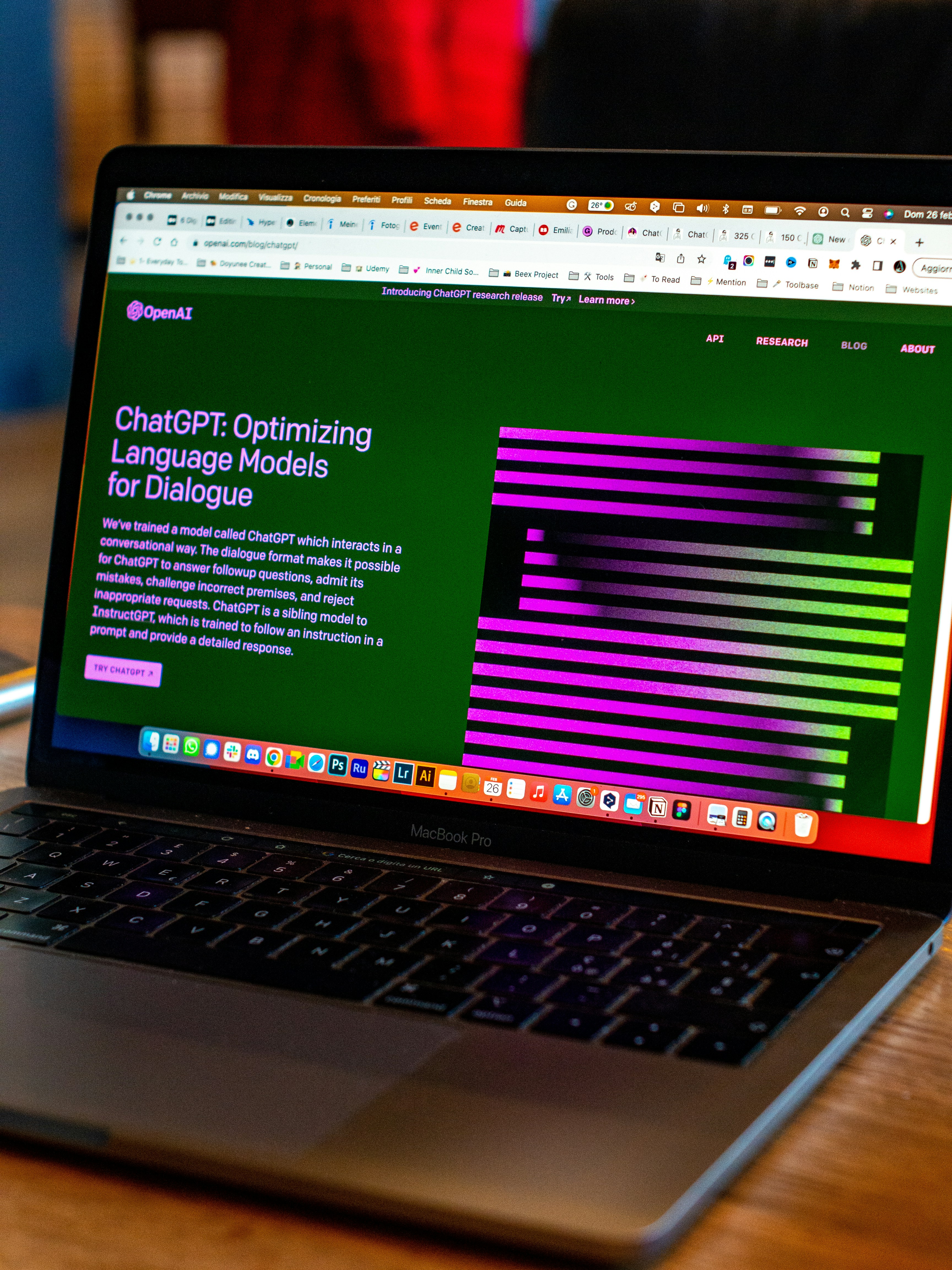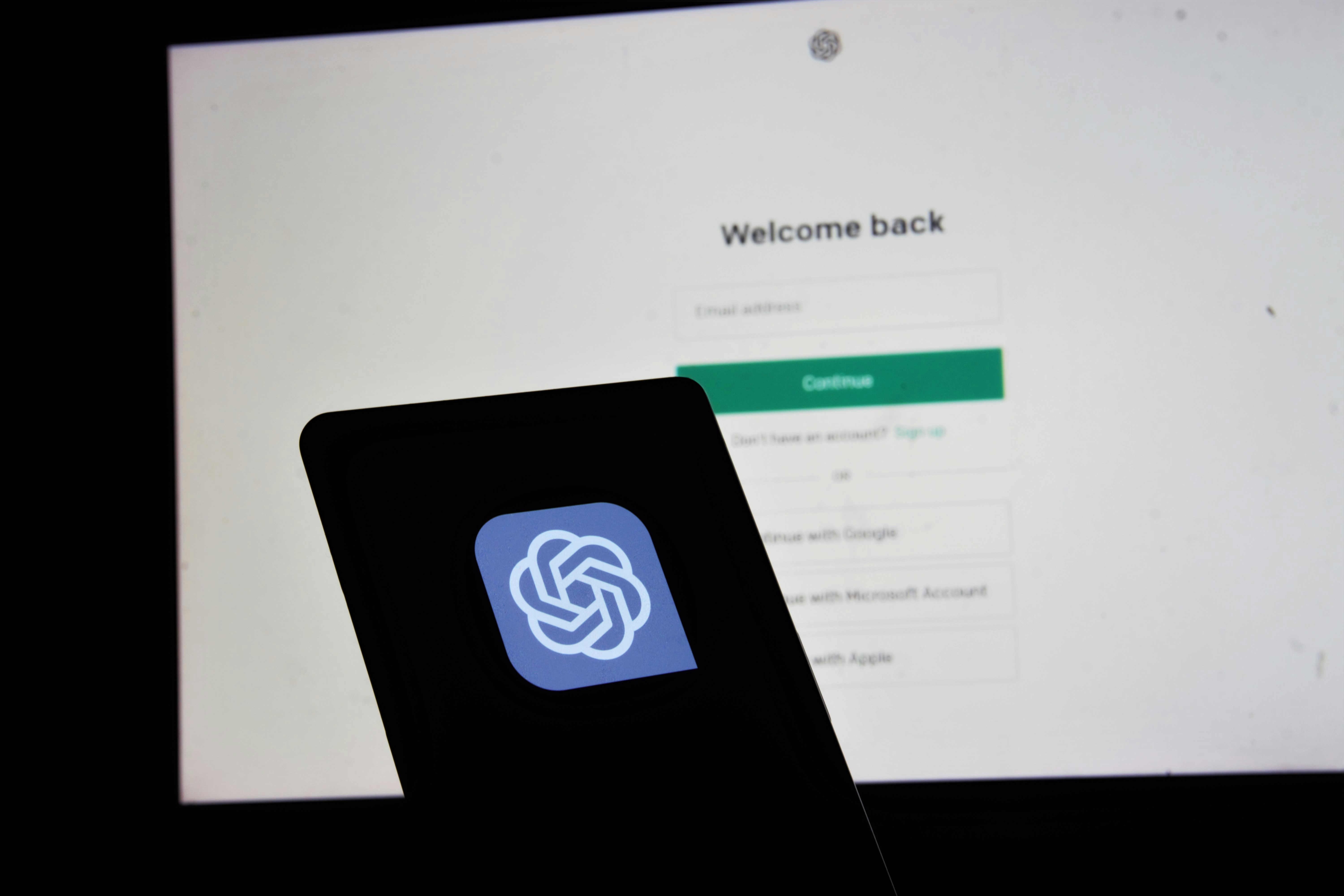
In today’s digital marketing landscape, AI content generation emerges as a game-changer, offering innovative solutions for crafting narratives that hook audiences.
By harnessing the power of artificial intelligence, marketers unlock a world of possibilities, from enhancing creativity to streamlining content production workflows.
This advancement not only boosts efficiency but also revolutionizes how brands communicate with their target demographics.
However, navigating the complexities of generative AI in content creation requires a deep understanding of its capabilities, ethics, and applications.
Keep reading to decode the secrets of successful AI content generation and its transformative impact on marketing effectiveness.
Key Takeaways
- Generative AI Revolutionizes Content Creation by Combining Speed, Volume, and Personalized Marketing, Enhancing Customer Engagement Significantly
- Ethical Considerations, Including Plagiarism, Bias, and Privacy, Are Crucial in Maintaining Trust and Integrity in AI Content Generation
- Tools Like Hootsuite, HubSpot, and OpenAI’s GPT-3 Are Pivotal for Marketers Aiming to Leverage AI for Enhanced Audience Analysis and Content Personalization
- The Integration of AI in Marketing Strategies Promises a Future of More Sophisticated and Targeted Content, Increasing Return on Advertising Spend (ROAS)
- Continuous Learning and Optimization Through AI’s Predictive Analytics Capabilities Are Key to Crafting Effective Ad Content That Boosts Conversion Rates
Understanding Generative AI: How It Works

At the heart of today’s digital marketing success lies the power of Generative AI.
This technology is revolutionizing the way brands create content, making it essential to understand how it operates.
The process of Generative AI is both fascinating and intricate, involving several critical steps that transform basic inputs into captivating marketing narratives.
Let’s glance at how Generative AI crafts personalized and engaging content, setting the stage for a deeper exploration of its operational mechanics.
The Generative AI Process and its Steps:
The journey of Generative AI in content creation starts with data collection, where vast amounts of information are gathered. This data set becomes the foundation on which AI builds its understanding. The next step involves natural language processing (NLP), where the machine learns to comprehend and generate human-like text. Finally, through a series of refinements and learning from feedback, the AI fine-tunes its output to ensure relevance and engagement with the target audience:
| Step | Description |
|---|---|
| Data Collection | Gathering extensive information to serve as the building block for AI’s learning. |
| Natural Language Processing (NLP) | Machines interpret and mimic human language. |
| Feedback Learning | AI refines its output, enhancing its accuracy and relevance based on user interaction. |
Strengths of AI Content Tools
AI content tools bring a host of strengths to the digital content creation arena, fundamentally transforming how content is produced, personalized, and presented. First and foremost, these tools offer unmatched efficiency, allowing for the rapid generation of content that can keep pace with the demands of today’s fast-moving digital landscapes. This efficiency does not just mean quicker content production; it also implies a more streamlined workflow where repetitive tasks are automated, freeing up human creators to focus on more strategic and creative endeavors.
- Efficiency and Speed: AI tools can produce content quickly, significantly reducing the time needed for content creation and allowing for more content to be produced in less time.
- Data Analysis and Insights: By analyzing large datasets, AI can uncover trends and insights that can inform more targeted and effective content strategies.
- Personalization: AI excels at tailoring content to individual users, enhancing user engagement by delivering highly relevant and personalized content experiences.
- Scalability: These tools can easily scale content production to meet the needs of growing businesses without a proportional increase in costs or resources.
- Consistency: AI helps maintain a consistent tone and style across all content, ensuring brand messaging is uniform and professional.
- Content Optimization: AI tools can optimize content for search engines and social media platforms, increasing visibility and engagement.
Each of these strengths represents a significant advantage in the competitive field of content marketing, enabling businesses to leverage AI for more impactful and engaging content strategies.
Weakness of AI Content Tools
Despite the significant advantages offered by AI content tools, there are inherent weaknesses that need careful consideration. The primary concern lies in the realm of creativity and authenticity. AI-generated content, while efficient and scalable, often lacks the nuanced understanding and emotional depth that human writers bring to their work. This can result in content that feels generic or disconnected from the audience’s real interests and needs.
Additionally, there’s the issue of accuracy and bias. AI tools rely on the data fed into them, which can inadvertently perpetuate existing biases or produce content based on outdated or inaccurate information, potentially harming a brand’s credibility and trust with its audience.
- Limited Creativity: AI may struggle to replicate the creative and emotional depth that human writers offer, potentially leading to content that lacks originality or fails to engage audiences on a deeper level.
- Potential for Bias: Since AI algorithms learn from existing data, there’s a risk of perpetuating biases present in that data, leading to content that may not be fully inclusive or accurate.
- Accuracy Concerns: AI tools might generate content with factual inaccuracies or outdated information, undermining the credibility of the content.
- Ethical and Job Displacement Issues: The increasing reliance on AI for content creation raises ethical questions about the displacement of human jobs and the implications of machine-generated content on employment in creative fields.
- Dependency and Overreliance: There’s a risk of becoming too dependent on AI tools, which can stifle human creativity and innovation if not balanced with human oversight and input.
- Customization Limitations: While AI can produce personalized content, its ability to truly understand and reflect complex human needs and contexts in a deeply customized way is still evolving.
Addressing these weaknesses is crucial for organizations aiming to integrate AI into their content strategies responsibly and effectively, ensuring that the content remains engaging, credible, and ethically produced.
OpenAI: Empowering Responsible AI Usage

In the landscape of AI content generation, OpenAI emerges as a beacon of responsibility and innovation. It sets a pioneering example by designing AI tools that prioritize ethical use and mitigate risks associated with content generation, such as misinformation or copyright infringement.
OpenAI’s commitment to responsible AI usage is not just talk; their actions and policies echo this dedication:
| Area of Focus | Action |
|---|---|
| Transparency | Openly shares research and technology advancements |
| Privacy Policy | Strict guidelines to protect user data |
| Predictive Analytics | Ensures AI’s predictive models prevent biases and promote fairness |
By setting these high standards, OpenAI not only enhances the trust in AI content tools but also inspires other developers and organizations to adopt similar ethical frameworks. This commitment to ethics ensures that AI content generation remains a powerful tool for marketers, without compromising integrity or privacy.
Ethical Considerations in AI Content Creation

While AI content generation promises a new horizon for marketing, navigating its ethical landscape is paramount. The technology’s ability to churn out content at breakneck speed must be balanced with a sense of responsibility and concern for the broader implications: plagiarism, bias, and privacy risks. These elements, if not properly managed, could tarnish a brand’s reputation rather than elevate it.
- Plagiarism remains a significant concern, urging creators to use AI in ways that ensure originality and respect intellectual property.
- Bias in AI-generated content can inadvertently perpetuate stereotypes or exclude certain groups, underscoring the need for diverse data sets and continual oversight.
- Privacy risks emerge from the extensive data collection involved in training AI models, making transparent data handling policies a must for maintaining user trust.
Addressing these ethical considerations is not just about risk management; it’s about fostering trust and building a sustainable relationship with the audience. Brands that prioritize ethical AI content creation are positioned to not only lead with innovation but also with integrity.
Above all, the ethical use of AI in content creation reflects a brand’s commitment to doing business responsibly. It’s a demonstration that the brand values not just the power of AI but also the importance of maintaining an ethical business practice in the face of groundbreaking technology.
Leveraging AI Content Generation in Marketing

In the bustling online marketplace, leveraging AI content generation has become an essential strategy for marketers aiming to captivate their target audience. This approach not only enhances brand visibility but also streamlines the content creation process, making it more efficient and cost-effective. It’s about striking the perfect balance between technology and human creativity to craft messages that resonate.
The journey from data to dialogue is nuanced and intricate:
- Data collection and analysis pinpoint the preferences and behaviors of the target audience.
- Natural language generation tools then craft personalized content, from email marketing to social media posts, that speaks directly to the consumer.
- Finally, ongoing feedback and data analysis refine and optimize the content strategy, ensuring that marketing messages stay relevant and engaging over time.
With its ability to generate a vast array of content swiftly, AI paves the way for innovative storytelling and branding strategies. These automated systems not only offer a competitive edge in terms of speed and volume but also unlock new possibilities for personalized marketing, thus enhancing customer engagement and satisfaction significantly. AI in content generation is changing the game, empowering businesses to connect with their audience in more meaningful ways.
Recommended AI Tools for Marketers

In today’s digital marketing sphere, leveraging AI tools is crucial for marketers aiming to gain a competitive edge through increased efficiency, advanced personalization, and deep consumer insights. Several AI tools have risen to prominence, revolutionizing various aspects of marketing:
- ChatGPT: Renowned for its ability to produce conversational content and handle real-time queries, making it invaluable for customer service and engagement.
- Jasper AI: Formerly known as Jarvis, this tool is celebrated for its robust content creation capabilities, enabling the crafting of everything from blog posts to ad copy that aligns with specific marketing objectives.
- SEMrush: Offers AI-driven SEO and market analysis tools, assisting marketers in optimizing their online presence and refining their content strategies.
- HubSpot: Known for integrating AI into its CRM and marketing services, providing features for personalized content creation, email marketing automation, and insightful data analysis to streamline marketing efforts.
These tools illustrate the transformative impact AI is having on marketing, helping professionals to execute more precise, engaging, and successful campaigns.
Getting Started With AI Content Creation Tools

Embarking on the journey of AI content generation begins with selecting the right tools. Marketers need to identify software that aligns with their goals, whether it’s enhancing customer engagement or streamlining content production. Taking the time to evaluate features, scalability, and support can lead to finding a solution that perfectly fits a marketing strategy.
After choosing their AI technology, marketers should focus on setting clear objectives. This entails defining the target audience, the type of content needed, and how it fits into the overall marketing campaign. Clear goals help in fine-tuning the AI’s output, ensuring the generated content resonates well with the intended audience.
Finally, integrating AI tools into the content creation workflow marks a significant step towards efficiency and innovation. Training team members to use these tools effectively allows for the seamless generation of content. With a bit of creativity and oversight, marketers can harness AI to produce content that stands out, fostering stronger connections with their audience.
Looking Ahead: The Future of AI in Marketing

The horizon of marketing is expanding, with artificial intelligence playing a pivotal role in shaping the future. The rapid evolution of AI technologies promises even more sophisticated means of crafting personalized content, cementing their place as an invaluable asset in a marketer’s toolkit. This progression will redefine how businesses engage with their audiences, ensuring messages are not only timely but highly relevant.
AI’s journey into predictive analytics and augmented reality presents a groundbreaking opportunity for marketing. Imagine leveraging AI to predict consumer behaviors with startling accuracy or creating immersive brand experiences through augmented reality. These advancements will open up new avenues for connecting with customers, making every interaction more engaging and impactful.
As artificial intelligence becomes more integrated into marketing strategies, ethical considerations, and human oversight will be more crucial than ever. Balancing AI’s efficiency with the creativity and empathy of human input will ensure that marketing campaigns remain effective and authentic. Looking ahead, the fusion of AI and human creativity heralds a marketing landscape rich with innovation, ready to tackle the challenges of tomorrow’s digital marketplace.
How Better AI Content Generation Leads to Higher ROAS

Better AI content generation propels Return On Advertising Spend (ROAS) by producing highly targeted and personalized content. This aligns perfectly with the interests and preferences of the audience, leading to improved engagement and conversion rates. It’s a key component in maximizing marketing dollars and boosting overall profitability.
Incorporating AI allows for the analysis of vast data sets to identify patterns and trends in consumer behavior. This insight enables marketers to craft messages that hit the mark every time. The precision in messaging ensures that advertising efforts are not wasted on content that does not resonate, thereby increasing ROAS.
AI-driven content creation also significantly reduces the time and resources required to produce high-quality content. This efficiency frees up marketers to focus on strategic initiatives and optimization, rather than getting bogged down with content generation. The savings in time and budget directly contribute to a higher ROAS, making AI content generation an indispensable tool in modern marketing arsenals.
Conclusion
Deciphering AI content generation emerges as a pivotal factor for successful marketing, harnessing the power of technology to transform vast data into personalized, engaging narratives.
By effectively utilizing Generative AI, marketers can achieve high-volume content production, speed, and efficiency, addressing the insatiable demand for online content.
However, balancing this technological prowess with a human touch, to add depth, insight, and emotional resonance, is crucial.
Ethical considerations, including plagiarism, bias, and privacy, play a significant role in maintaining integrity and building trust with the audience.
OpenAI stands at the forefront of responsible AI usage, setting an example in transparency, privacy, and fairness that others are encouraged to follow.
As we look ahead, the future of marketing lies in a creative synergy between AI’s analytical strengths and the irreplaceable value of human empathy and creativity, ensuring that content not only captures attention but fosters meaningful connections.

Comments